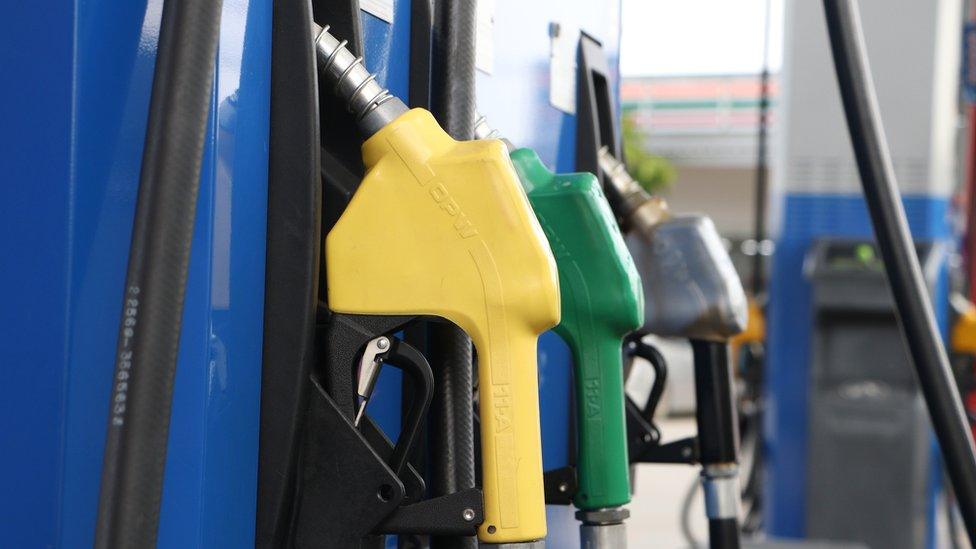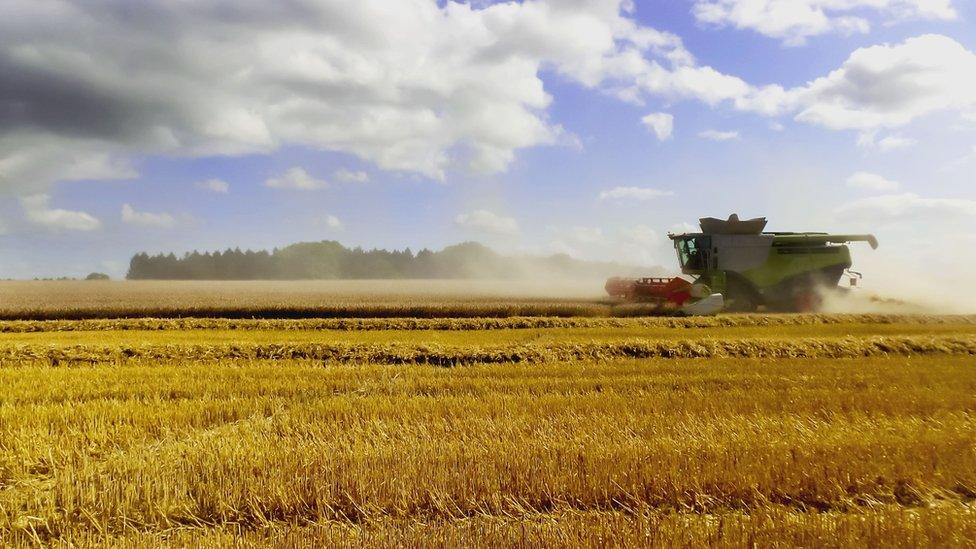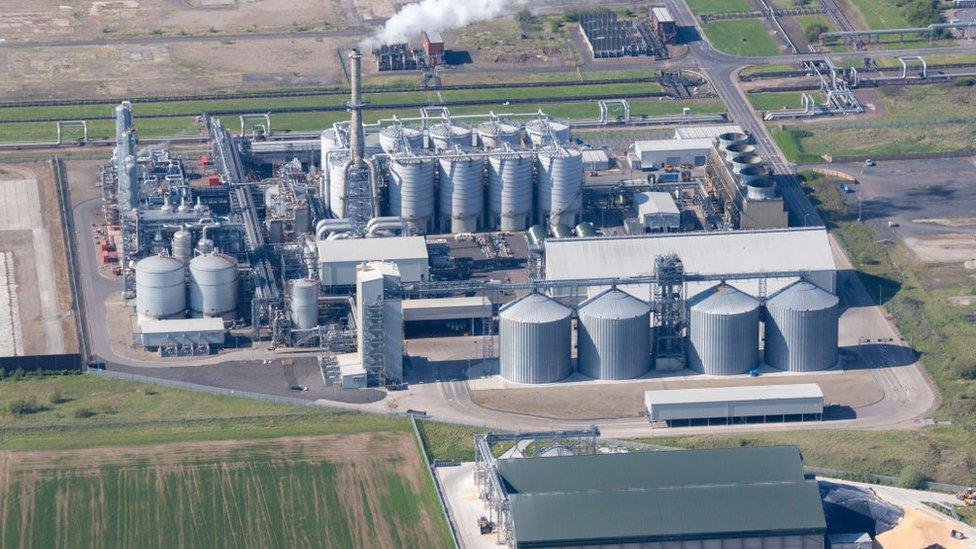Climate change: 'No brainer' fuel change to cut transport carbon
- Published
- comments

Adding more ethanol to the UK's fuel mix would cut carbon by as much as taking 700,000 cars off the roads, according to a group of MPs.
The All-Party Parliamentary Group for British Bioethanol, external says the swift introduction of E10 fuel would also help the £1bn British biofuel industry.
E10 is a mixture of 10% ethanol with 90% petrol, double the current permitted maximum.
The MPs say that Brexit has distracted the government from taking action.
One of the unintended consequences of 2015's diesel emissions scandal has been a jump in the sales of petrol cars, with a knock-on effect on sales of the fuel.
This has contributed to the first increase in emissions of CO2 from new cars, external in two decades recorded in 2017.
A significant plank of the government's plan to reduce carbon on the roads has been the introduction of biofuels made from crops, which soak up CO2 as they are grown.
At present, ethanol made from wheat or sugar beet is blended into petrol to a maximum of 5%.
The report's authors say that while electric cars and vehicles are the long-term solution to emissions from transport, E10 represents a big advance that could be achieved right now.
"For many reasons it is absolutely a no-brainer," said Nic Dakin MP, the chairman of the all-party group.
"On the environmental front, it's a cleaner, greener fuel at a time when we're trying to address air pollution and tackle climate change.
"Cars aren't going to all switch to battery power overnight and if they did there isn't the capacity in the National Grid to power all of our transportation.
"This must be a top priority for the government and we renew our call for a mandate to introduce E10 by 2020 at the latest."
In other European countries, the change to E10 has been fully embraced. France introduced the fuel in 2009 and last year it was the largest volume petrol grade sold, with 47% of the market.
Germany, Belgium and Finland have also introduced E10, with other countries including China and India set to do the same. In Brazil the minimum ethanol content is now 27%.
Boost for business
The report says that without the introduction of E10 fuel the UK's bioethanol producers, based in the North of England, will struggle to survive.
Last September Vivergo, one of the three main producers of the biofuel announced it would close its facility on Humberside with the loss of 150 jobs.
The introduction of E10 would likely secure and strengthen the industry which has the potential to support approximately 6,000 jobs in the UK.

Wheat is one of the crops that is used for making ethanol in the UK
"We built a plant in 2010, we've had four periods when the plant has been offline, and the reason for that is lack of demand," said Grant Pearson from Ensus, one of the UK's three ethanol production companies.
"We expected that demand would be at least twice what it is, and that move from E5 to E10 would just get us back on track."
Last year the government issued a consultation on the idea of increasing this to 10%, but since then nothing has happened, a decision that MPs describe as "baffling" and likely due to the distraction of Brexit.
"It is bonkers that the Department of Transport has yet to publish its consultation on the introduction of E10," said Nic Daikin.
"The British bioethanol industry is in a state of collapse, and ministers can not allow the fog of Brexit to distract them any longer from saving a £1bn industry that will not only make our cars cleaner and greener, but provide thousands of green jobs in the North and prove that the government is serious about championing the green economy."
In response, a Department for Transport spokesperson said: "We are committed to supporting cleaner and greener fuels, and we recognise the important role they have to play in decarbonising transport."
"Following our call for evidence on E10, we intend to publish our next steps in due course."
Critics of the introduction of E10 say that it is not certified to run in some older cars, principally those manufactured before 2000.

One of the UK's bioethanol plants near Middlesbrough
The report says that this threat is minimal and that there is no evidence from Europe or the US where E10 is widely used of the fuel causing any significant damage to to any vehicle manufactured before the turn of the century.
Indeed the report says that the fuel industry has "given express assurances that were E10 to be mandated, motorists would still be able to purchase E5 (as octane 98) at many forecourts. Thus any older cars which are not expressly warrantied for E10 can still have access to fuel that is compatible with their engines."
Other critics of the switch are worried that going for extra ethanol in the mix might push up prices on the forecourt.
"The cost impact is minuscule," said Grant Pearson.
"The price of ethanol compared to petrol varies over time, we've had periods where ethanol has been cheaper than petrol. There's a tiny reduction in terms of potential mileage but its less than 1%, so depending on how heavy your shoe is you wouldn't see it in the mileage that your are doing."
If the bioethanol industry flounders, the report says, the UK would likely have to increase imports of biofuel from overseas, including used cooking oil from China, which is likely boosting the use of palm oil from deforested lands.
Follow Matt on Twitter @MattMcGrathBBC, external